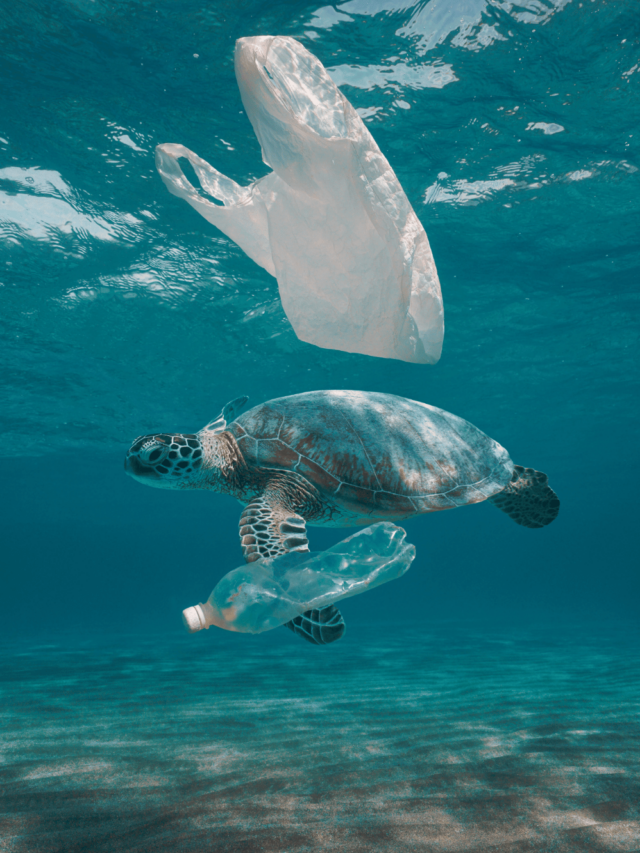How To Find A Bank That Shares Your Commitment To The Environment
The money that you deposit can be used for projects that help the environment, so take the time to find a greener bank.

savings can be a great way to take control of your environmental impact. If you’re committed to reducing your carbon footprint – perhaps spending time recycling and purchasing eco-friendly products – then it’s essential to ensure the bank you choose isn’t undermining your other efforts.
One of the effective ways to bring positive change to the environment is to put your money where your values are. You can make the world a little greener with your own green by investing your money in a bank that shares your principles.
What Does Green Banking Mean?
Green banking refers to any form of banking that benefits the environment. Instead of funding projects you don’t agree with like the fossil fuel industry, it enables you to contribute towards a future with renewables. Green banking ensures your money is invested in institutions that use innovative financing to accelerate the transition to clean energy and fight climate change.
Why Choose A Green Bank?
As a conservationist, it is prudent to choose a bank whose mission is to finance the transition into clean energy and simultaneously fight climate change. Aside from this, green banks also have the following benefits:
- Green banks provide the initial investments for clean energy technologies to prove to customers and private investors that these technologies have a higher return on investment than fossil fuel-based systems.
- They also build trusting partnerships with local authorities, community members and private investors and support small innovative projects, such as electric vehicle prototypes.
- Additionally, they go as far as financing long-term, low-interest loans to encourage homeowners and business owners to switch to clean energy systems. Unlike traditional bank loans, green banks offer green loans which are available to borrowers with a wide range of credit scores.
How To Choose A Green Bank
Ultimately, green banks aim to fight climate change. These banks have a triple bottom line where they not only care what’s in their pockets, but the people and the planet too. That said, if you’re considering giving your personal finances a makeover, here’s how you can find a greener bank.
1. Check The Bank’s Environmental Policy
When choosing a bank, you are also choosing where your money will be invested. To choose a green bank, you can check your bank’s environmental policy and what it covers. Many banks claim to be eco-friendly, but in fact, do little to support environmental initiatives with the money you deposit with them.
Certifications like B-Corp and membership in groups like Global Alliance for Banking on Values can be good signs that a bank is committed to sustainability – and that they’re being held accountable for those commitments. You can also check your bank’s website to see if they have any green policies they have implemented internally. Consider asking your bank exactly how they support the environment before assuming that their self-anointed “Green Bank” label is deserved.
2. Look Out for Divestment From Fossil Fuels
You can multiply your environmental impact by choosing to bank with an institution that avoids contributing to climate change through the project it finances.
Many mainstream banks are now actively financing companies in the fossil fuel industry, which in turn is directly contributing to climate change. According to a report by Banktrack, 60 of the world’s largest private banks funneled a shocking $3.8 trillion into coal, oil and natural gas projects between 2016 and 2020.
If you’re concerned about climate change, which is the biggest environmental issue now facing the planet, you can avoid putting your savings in a bank that’s making the issue worse.
3. Consider The Availability of Green Credit or Debit Cards
A handful of banks offer socially conscious credit or debit cards that donate a percentage of your spending to environmental causes. Most of these banks may send you debit or credit cards in the mail, and many are made of sustainable material. Additionally, they may offer great teen debit card choices to ensure children start to contribute towards a greener environment from a tender age.
If you decide to opt for an eco-conscious card, you may have trouble sorting through your options. Financial experts recommend having a healthy skepticism by looking at the bank that’s issuing the card, as well as the card’s environmental benefits. If details about profit sharing are available, do the math and try to evaluate which card makes the biggest impact.
Remember that a card that offers tangible support for the environment can be empowering to you and your kids.
4. Look For Positive Lending
Green lending is the practice of providing funds to a venture that has an environmental benefit. These projects are often in renewable energy, sustainable housing and recycling sectors.
It’s a good idea to go for a financial institution with lending policies that focus on projects that have environmentally positive impacts. In doing so, you can guarantee that your savings are being put to good use.
5. Research On The Bank’s Green Initiatives
Before selecting a green bank, you need to see if a bank is active in its local community or national green initiatives. Green banks are sometimes very active in promoting environmental projects. You may eventually find a bank that shares the same interests as you.
6. Can Your Bank Automate Your Commitment To The Environment?
Just like it’s easier to achieve your savings goals by automating your savings, it’s easier to commit money to save the environment by automating it. Some banks offer plant your change programs. In this program, they plant a tree for each completed debit card transaction.
Red (and Green) Flags To Look Out For On Your Bank Search
In the same way that companies can greenwash their products, banks can also greenwash their services. For instance, if a company is too busy talking about its green offices, green e-statements, or green philanthropy but not how it doles out its money, that can be a big warning sign. It’s also important to assess what a bank is doing today to benefit the planet.
Another key question to ask is how much money a bank is putting into community investments versus speculative investments. If a company is investing in eco-friendly initiatives, that’s a good sign that your money could go toward making the world more sustainable.
Wrapping Up
In finance, green could be the new black. If living green is important to you, your bank needs to reflect that. To decide on a bank that suits you, it’s important to research and find out which ones blend with your principles. The money that you deposit can be used for projects that help the environment, so take the time to find a greener bank.
FAQ
What Defines an Environmentally Committed Bank?
A bank with strong policies supporting environmental sustainability and green investments.
How Can I Research a Bank’s Environmental Policies?
Review their website, annual reports, and sustainability statements.
What Are Green Banking Practices?
Practices like paperless banking, green loans, and financing renewable energy projects.
Can Customer Reviews Indicate a Bank’s Environmental Commitment?
Yes, reviews may provide insights into their green initiatives.
Are There Certifications for Environmentally Friendly Banks?
Look for certifications or memberships in sustainability organizations.
How Does a Bank’s Investment Portfolio Reflect Its Commitment?
A focus on renewable energy and eco-friendly projects is indicative.
What Questions Should I Ask a Bank About Their Environmental Practices?
Inquire about their green policies, investments, and sustainability goals.
Can Community Banks Be More Environmentally Committed?
Often, as they may be more in tune with local environmental needs.
How Important is Transparency in a Bank’s Environmental Efforts?
Transparency is key to understanding and trusting their commitment.
Should I Consider Online Banks for Environmental Reasons?
Online banks can have a smaller carbon footprint due to less physical infrastructure.
Create more and better content
Check out the following resources and Grow!









